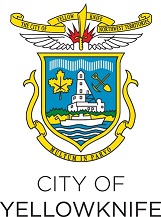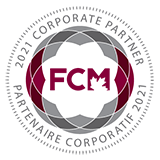I was honoured to be the opening keynote speaker at the recent Canadian Network of Asset Managers' conference in Vancouver. The room was sold-out, and there was a lot of enthusiasm and interest in the sessions throughout the well-run conference.
In setting the tone for the conference I focused on the importance of asset management for municipalities today. As I said in my opening, "Our towns and cities today aspire to be successful, prosperous and deliver a great quality of life to local residents. Local infrastructure is the foundation of the health, well-being and economic prosperity of communities across Canada. When cities and towns talk about economic development and building wonderful neighbourhoods, it all begins with basic infrastructure."
What has been missing in this necessity of modern life is the much greater participation by the federal, provincial and territorial governments in Canada. This issue should be a key part of the upcoming federal election campaign. Municipalities should be aggressively educating, informing and asking for support and commitments from potential MPs to help fund the infrastructure deficit in our towns and cities.
I believe the generally-accepted definition of Canada's municipal infrastructure deficit (which focuses primarily on the horizontal infrastructure of our towns and cities) is too shallow and limiting. I think we need to broaden the definition very significantly to include things like technology (including a modern, secure electricity and telecommunications grid), the creative needs of communities (such as libraries and a community's green and natural assets), the growing demands of the health-care and post-secondary education sectors, and the desperate need to push the provincial and federal governments to invest in their assets that directly impact municipal prosperity things like border security, harbours, the Trans-Canada highway and many others.
In my speech, I also focused on what I see as an emerging role for assets managers across Canada and that is also considering design elements in the planning of municipal assets.
Again, to quote from my Vancouver speech, "Increasingly, I think that you as the leading asset managers in Canada will have a greater role to play as cities design and re-build their infrastructure. From public transit to social housing, from how we use our streets and sidewalks, it is not just a numbers game on a spreadsheet. This is why it is urgent for you to understand the importance and the changing role of urban design, and the public realm, and how people use it."
There is a global hunt for talent right now. Cities are fighting to attract entrepreneurs, smart young graduates, families starting out and people in the CRINK economy Creative, Innovative, and Knowledge-based economies. These are the jobs of today, and most certainly of tomorrow.
Grads and job-creators are looking for fun, smart and engaged cities and towns in which to live, work, play and raise their families. Cities that create that kind of environment, that have a vibrant downtown, an active social scene and housing that is affordable are more likely to attract this emerging talent base.
"There are direct connections between how we design and build our cities and their ability to attract talent, entrepreneurs, investors and job-creators. There is a critical link between local economic prosperity, your public places and spaces, and how you maintain and protect your civic infrastructure," I noted in my presentation.
Canadian municipal politicians and staff must understand the changing dynamics of our society in Canada as well as globally. This will help their community to plan better for future capital asset investments. For example, the fastest-growing segment of the housing market is single-person households. Housing, particularly in metro and urban areas, is getting smaller a 291 sq ft micro-suite in downtown San Francisco recently sold for a breath-taking $415,000. What will that shift mean to downtown public transportation plans? Will your sewers and sidewalks have sufficient capacity? The electricity grid? Accessing fresh, local food?
At the same time, there is a massive global shift of people from rural to urban settings, particularly in China, India, Southeast Asia and Africa. This will create a gigantic demand for new infrastructure investments that some are estimating at $50 trillion.
If North American cities and nations fall behind in our infrastructure, we risk our international competitiveness.
The problem is how to pay for these investments. In Canada we have a federal government with no urban agenda. Provincial governments are cash-strapped. The property tax system is broken and can't be fixed.
We need to re-think our whole system of financing municipalities. I have argued in my books and speeches for many years that we need to change the system. Municipalities need access to and be held accountable for a piece of the consumption taxes: Income, Sales, Gas, etc.
We need more innovative ideas for funding capital spending tax-free Municipal bonds for example, and getting large Canadian pension funds to invest in municipal infrastructure.
We need to attract Canadian philanthropists to also consider city-building needs in their donation strategies. The US is way ahead of us in this.
We need to make the other orders of government understand that prosperous, strong towns and cities are the foundation for a flourishing national economy that can compete internationally.
We might even need to-gulp raise taxes a bit to pay for these much-needed investments. The alternative is to dump this growing problem on the laps of the next generation, which quite frankly is a timid and lousy thing to do.
We need a stronger commitment to innovation and creativity in our emerging businesses and industries. And our municipalities need to cut the red tape and instead roll out the red carpet for investments and entrepreneurs.
Modern infrastructure, smart asset management and building intelligently for the future are foundational tools for the legacy our politicians and municipalities will leave for the next generation.


























